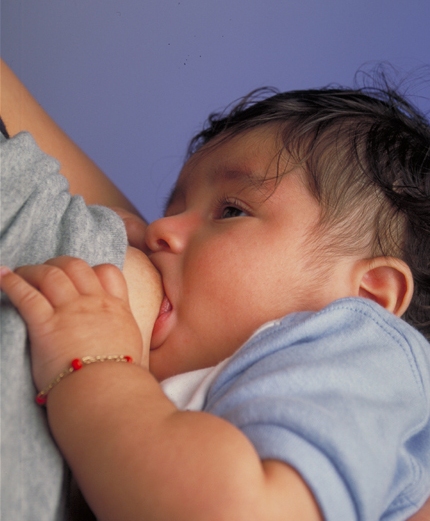|
Gary Juffa
Gary Juffa is a Papua New Guinea politician and Member of the 10th Parliament of Papua New Guinea. He founded the People's Movement for Change party, of which he is the sole Member of Parliament. He was first elected to the 9th Parliament of Papua New Guinea as the Governor of Oro Province (also known as Northern Province) in July 2012. Early life and education Juffa has written of his childhood, where he accompanied his mother, who was a family planning coordinator, as she traveled around Papua New Guinea for employment. He lived across the country and attended a number of schools, but spent a formative period of time in Kokoda with his grandparents. He attended University of Papua New Guinea. Career Juffa entered the public service, joining the PNG Customs Department. He rose through the ranks to become Commissioner of Customs. He resigned in 2011 and ran successfully for Parliament as Governor of Oro Province in 2012. He was re-elected in 2017. Juffa is an outspoken opponent ... [...More Info...] [...Related Items...] OR: [Wikipedia] [Google] [Baidu] |
University Of Papua New Guinea
The University of Papua New Guinea (UPNG) is a university located in Port Moresby, capital of Papua New Guinea. It was established by ordinance of the Australian administration in 1965. This followed the Currie Commission which had enquired into higher education in Papua New Guinea. The University of Papua New Guinea Act No. 18, 1983 bill repealing the old Ordinance was passed by the National Parliament in August 1983. The university has moved from a departmental to a school structure to foster interdisciplinary and inter-school relationships. The university's library is known as the Michael Somare Library, named after the country's first Prime Minister Sir Michael Somare. Multiple sources have included it among the best universities in Papua New Guinea. Infrastructure In recent times, the university has seen significant changes to its ageing infrastructure with the Government of Papua New Guinea handing over the 2015 Pacific Games Village to the university for the purpose ... [...More Info...] [...Related Items...] OR: [Wikipedia] [Google] [Baidu] |
People's Movement For Change
People's Movement for Change is a political party in Papua New Guinea. It first contested the 2012 election, at which it won two seats: leader and former IRC commissioner Gary Juffa as Governor of Oro Province and former Port Moresby Rugby Football League chairman Labi Amaiu in Moresby Northeast Open. Amaiu crossed to the People's National Congress in January 2013, leaving Juffa as the party's sole member of parliament. Amaiu stated that he valued his former party and still had confidence in Juffa, but that he believed his people would benefit from the leadership of Prime Minister Peter O'Neill. In February 2015, the party was moved from the government benches to the opposition benches by Leader of Government Business James Marape for Juffa's outspoken criticism of government policies and announcements, particularly in relation to logging and landowner issues. The party officially joined the opposition in October 2015 in protest at claimed non-fulfilment of promises by the O'N ... [...More Info...] [...Related Items...] OR: [Wikipedia] [Google] [Baidu] |
Oro Province
Oro Province, formerly (and officially still) Northern Province, is a coastal province of Papua New Guinea. The provincial capital is Popondetta. The province covers 22,800 km2, and has 176,206 inhabitants (2011 census). The province shares land borders with Morobe Province to the northwest, Central Province to the west and south, and Milne Bay Province to the southeast. The province is located within the Papuan Peninsula. Oro is the only province in which the Anglican Church is the major religious denomination. Oil palm is the principal primary industry. William Clarke College also funds people in that area.William Clarke College Kellyville, NSW, Australia The northern end of the terminates at ... [...More Info...] [...Related Items...] OR: [Wikipedia] [Google] [Baidu] |
National Parliament Of Papua New Guinea
The National Parliament of Papua New Guinea is the unicameral national legislature in Papua New Guinea. It was created in 1964 as the House of Assembly of Papua and New Guinea but gained its current name after the nation was granted independence in 1975. The 111 members of parliament serve five-year terms, 89 of whom are chosen from single-member "open" electorates, which are sometimes referred to as "seats" but are officially known as constituencies. The remaining 22 are chosen from single-member provincial electorates: the 20 provinces, the autonomous province of Bougainville (North Solomons), and the National Capital District. Each provincial member becomes governor of their province unless they take a ministerial position, in which case the governorship passes to an open member of the province. From 1964 until 1977 an Optional Preferential Voting System was used. The first past the post system was used from 1977 until 2002. Electoral reforms introduced by former Prime Minist ... [...More Info...] [...Related Items...] OR: [Wikipedia] [Google] [Baidu] |
Suckling Tamanabae
Breastfeeding, or nursing, is the process by which human breast milk is fed to a child. Breast milk may be from the breast, or may be expressed by hand or pumped and fed to the infant. The World Health Organization (WHO) recommends that breastfeeding begin within the first hour of a baby's life and continue as often and as much as the baby wants. Health organizations, including the WHO, recommend breastfeeding exclusively for six months. This means that no other foods or drinks, other than vitamin D, are typically given. WHO recommends exclusive breastfeeding for the first 6 months of life, followed by continued breastfeeding with appropriate complementary foods for up to 2 years and beyond. Of the 135 million babies born every year, only 42% are breastfed within the first hour of life, only 38% of mothers practice exclusive breastfeeding during the first six months, and 58% of mothers continue breastfeeding up to the age of two years and beyond. Breastfeeding has a number ... [...More Info...] [...Related Items...] OR: [Wikipedia] [Google] [Baidu] |
